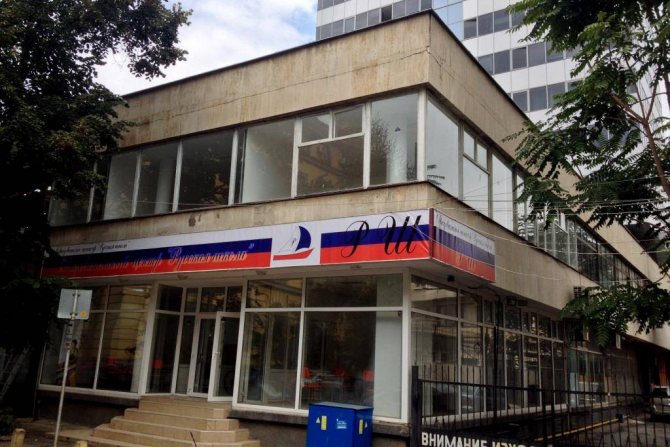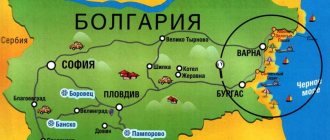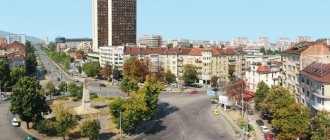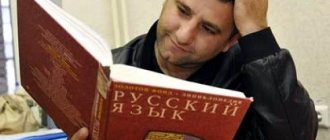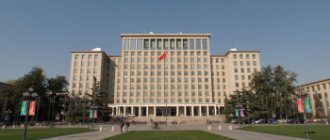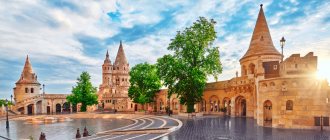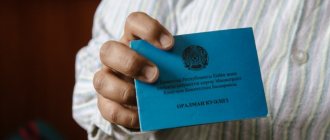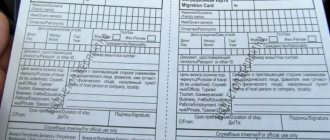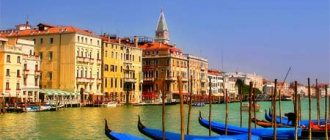According to the register of higher education institutions of the Republic of Bulgaria, there are currently 51 accredited higher education institutions in the country: universities, colleges, academies and others.
With the variety of universities in Bulgaria, it can sometimes be difficult to choose the right place to study. Therefore, several tools (sites) created by the Ministry of Education and Science come to the rescue, which will help you navigate among universities and obtain more specific information about each of them.
General education in Bulgaria
Education in Bulgaria is free, but purchasing everything necessary, especially for studying in high school, requires certain funds, which, in low-income families, simply do not exist. Therefore, there are municipal programs to help low-income families aimed specifically at ensuring that children receive a secondary education.
The period of school education begins, as a rule, from the age of 7, but if parents believe that a child who has turned 6 years old is, in terms of his physical and mental condition, quite ready to study at an elementary-level school, then after a little testing, he is accepted into first grade.
School education in Bulgaria is divided into degrees:
- basic education primary education - from 1st to 4th grade;
- pre-gymnasium education - from 5th to 8th grade;
- Gymnasium education - from grades 9 to 12.
Secondary education is acquired after successful completion of the 12th grade and successful passing of the required exams.
The classification of school education in Bulgaria according to the content of training is divided into:
1) general - general education minimum and, if possible, specialized training. General education in Bulgaria runs from grades 1 to 12.
2) professional - general education minimum and professional qualifications in accordance with state educational requirements. Vocational education in Bulgaria is carried out:
- from 7th or 8th grade - for three years;
- from 9th grade - for four years;
- in vocational colleges where people with secondary education study - up to two years.
Schools in Bulgaria are:
- primary - from 1st to 4th grade;
- pro-gymnasium - from 5th to 8th grade;
- basic - from 1st to 8th grade;
- gymnasium - from 9 to 12 grades;
- secondary general education - from 1st to 12th grade.
- profiled (professional) gymnasiums: sports;
- in the arts;
- by culture;
- special - technical, agricultural, food, etc.
No exams are required for admission to a regular school, but if a child enters a school for gifted children, he will have to take entrance exams. There are municipal primary schools in all localities that have the required minimum number of children of the appropriate age. If there are too few children, then they are provided with free transport to travel to the nearest town where such a school is located. The same bus returns the children home.
Preschool education
Education for preschool children usually begins at age three and lasts until age five. The third and fourth years of education, which can be carried out in kindergartens and schools, are mandatory to prepare children for school. The purpose of such education is the initial socialization of children and their minimal preparation - at the level of primary skills in reading, writing and counting. After this comes formal compulsory schooling.
Primary basic and secondary education in Bulgaria
Schools in Bulgaria generally accept all students, regardless of nationality. For citizens of the country, primary and secondary education is free, while immigrants will have to pay for their children's education before obtaining citizenship. In public schools, a child's year of education costs 100-300 euros, while in private schools the cost of an academic year can reach up to 2,000 euros.
All children attend school 5 days a week and their progress is assessed using assessment tests. Knowledge assessment is carried out on a 6-point scale. Maximum score 6.
For systematic absenteeism without a good reason, a child may be expelled from school.
Each school has its own schedule, taking into account the characteristics of educational programs. The school year begins on September 15 and ends at the end of May or June, depending on the school program.
State and Russian-language schools in Bulgaria accept students whose parents have provided the following package of necessary documents before the start of the school year:
- medical record of the incoming student;
- birth certificate;
- a certificate from the previous place of study, if any;
- personal file from previous school.
It is assumed that the entire package of documents will be translated into the state language and must be notarized. For subsequent admission to local universities, knowledge of the state language is a big plus, therefore it is advisable to graduate from public schools.
Higher education in Bulgaria
Higher education in Bulgaria is graded in accordance with the Bologna Agreements. Thus, higher schools in the state offer the following degrees:
- professional bachelor;
- bachelor;
- master;
- Ph.D.
Today there are more than 50 universities in the country, including 9 private colleges that issue a European-style diploma. The education system in Bulgaria assumes the presence of the following types of educational institutions: classical universities, colleges and an analogue of our vocational schools - specialized schools and universities.
Obtaining higher and post-higher education in Bulgaria
Nine-month Bulgarian language courses at DNL-IIS are a recommended step on the path to successful studies at universities in Bulgaria!
Bulgarian educational system

According to the laws of the Republic, children of citizens are guaranteed a full school course, consisting of 12 classes. The education system in Bulgaria is built according to the Bologna principle and is three-stage. Local and international students are offered a wide choice of universities, including military, artistic and other special institutions.
Local students or children of foreigners who have managed to obtain citizenship are guaranteed a full school course. You may prefer to obtain knowledge in a private institution over free education at a public school. The cost of the annual course is 1000 €.
Structure of primary and secondary education
Despite the fact that the government has submitted an application to join the Schengen zone, other participants have not yet approved it due to the high level of corruption.
Features of university admission for Russians
All education in Bulgaria for Russians is paid, and this applies to universities. True, there is also a plus: for Russians, studying at universities in Bulgaria begins not with the usual exams in our country, but with language testing. Knowledge of the language and an official certificate of completed secondary education are sufficient for an applicant.
Submitting documents to a higher education institution in Bulgaria involves collecting the following package of documents:
- a certificate of complete secondary education (11 classes for Russia) or a diploma of higher education in your country;
- complete medical certificates obtained from the attending physician, including documents on the presence of serious diseases, disability groups, etc.;
- a covering letter from the educational institution that issued the certificate or diploma, confirming its legality and validity.
All submitted documents will certainly have to be translated into the state Bulgarian language through a translator and the translation must be notarized. It is better to do this before leaving for Bulgaria, because prices for certification and translations there are much more expensive than in the Russian Federation.
Review of submitted documents usually takes about a calendar month, so applicants should worry about submitting a package of papers in advance. Only after approval of the documents will it be possible to apply to the embassy to obtain a visa to the country type “D”, it is given for one academic year, and enter Bulgaria.
As a rule, studying in Bulgaria for Russians who do not know the language begins with a year of studying it. Language courses, of course, are paid and are conducted at the chosen educational institution. Accelerated learning is also possible. Cyrillic Bulgarian is quite easy for Russian-speaking immigrants, so there are usually no problems with learning it.
It is important to note that receiving a Bulgarian education does not give students the right to apply for a residence permit. A student visa “D” is given for exactly one year, after which it will need to be extended by documenting study at a higher educational institution.
Documents required by a foreigner for admission
Once a particular university has been selected, you need to collect a package of necessary documents and submit it either directly to the selected university or to the Ministry of Education. In Bulgaria, studies begin on October 1, documents must be submitted before September 1.
Required:
- statement;
- copy of the passport;
- medical certificate, translated and certified;
- a copy of the certificate, translated and certified;
- academic certificate - for applicants from Russia.
Within a week, the university will give an answer and, if it is positive, you can begin preparing documents for obtaining a visa.
Studying in Bulgaria for citizens of Kazakhstan, Russia, Ukraine

Residence permit in Bulgaria for students
For Russians and Ukrainians, the university sends documents of approved persons to the Ministry of Education and Science in connection with the implementation of the procedure for issuing long-term visas - type “D” visas no later than October 1 for the first semester and no later than February 1 for the second semester in the year of application.
Is it necessary to know Bulgarian or English to enter a Bulgarian university?
- Education at universities in Bulgaria is conducted in Bulgarian or English.
- Language and specialized training is carried out at the Faculty of Language Training of the university. Training is carried out in accordance with educational documentation, which covers the curriculum and training programs. Training in language and specialized knowledge lasts at least 9 months and is carried out in study groups of no more than 10 people. Language and specialized training is carried out by studying compulsory subjects, divided into two groups with a minimum number of hours, namely:
- For the humanities - Bulgarian language or the language in which training will be conducted - 800 teaching hours;
- For all other specialties - Bulgarian language or the language in which training will be conducted - 650 hours, as well as specialized subjects - 350 hours.
- Training in Bulgarian or in the language in which the training will be conducted ends with a written and oral examination.
- When entering a university, you can choose to study in English, having first checked whether this opportunity is provided.
Is free education possible?
A contract with a future employer will provide free higher education in Bulgaria. The conditions for this are set out in the draft Resolution on the conditions for ensuring payment for training of students who have entered into contracts with the employer.
Free higher education will not be available for all university majors. This opportunity is provided to those employers who lack highly qualified personnel.
Financial assistance in the form of scholarships, grants and loans at universities in Bulgaria depends on various criteria. Foreigners are entitled to the same scholarships covering tuition fees as nationals.
Even if you are not a citizen of the country you want to study in, if you have lived in Bulgaria for five years or more, you are eligible to receive a scholarship under the same conditions as citizens of the country.
What are the prices for studying at universities in Bulgaria?
Annual tuition fees at Bulgarian universities range from 200 to 7,700 euros.
Tuition fees in Bulgaria
Most of all applicants are tormented by the question of how much it costs to study in Bulgaria. After all, only the high cost of education for foreigners can prevent them from obtaining a diploma. Otherwise, education in Bulgaria provides only advantages. After graduating from university, employers around the world will welcome you, and you will bring valuable experience back to your home country.
Some universities offer free programs, but to enter you will need to go through a serious competitive selection process.
The quality of knowledge is at a high level in all regions, the prestige of each university is different. This largely determines the prices for studying in Bulgaria. To reduce the cost of studying in Bulgaria, you need to decide in advance on the educational institution and specialty. Early booking always gives a significant discount.
Study in Bulgaria
Going to study in Bulgaria is a very non-standard step. Education in Bulgaria is paid, and universities are not as prestigious as we would like. But, the European Union and admission without exams.
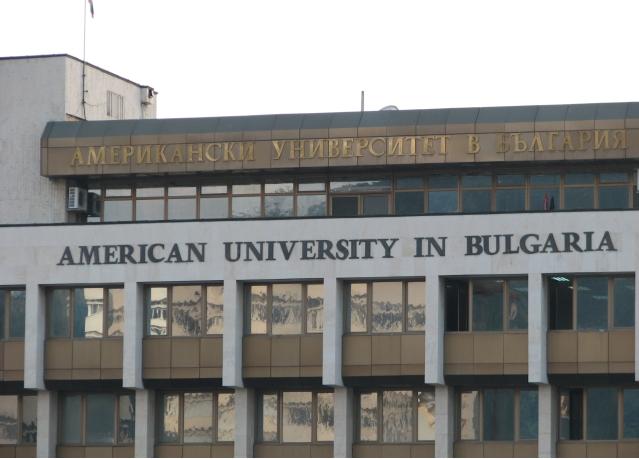
Among the advantages of studying in Bulgaria are the proximity of our cultures and the relatively short duration of study: higher education in Bulgaria is built according to the Bologna system, i.e. divided into “bachelor” and “master”. And if a “bachelor’s” degree in Bulgarian universities is standard - 4 years, then a “master’s” degree can be obtained in just one year, and not in two or three, as in other European countries.
In addition, Bulgarian universities actually accept students to study without exams - but for a fee, both for Bulgarian citizens and for foreigners. Tuition fee is 1200-1300 euros per semester. To enroll, you will definitely be required to know the Bulgarian language - universities have a language preparatory course, but in principle, Bulgarian can be learned in Russia. A big advantage for Russians is the proximity of the Bulgarian language to Russian - this is a Slavic group, and if desired, the language can be learned in 3-5 months.
The procedure for admission to Bulgarian universities looks like this. The first thing you need to do is decide on the type of study and the specific educational institution. Will it be a short seasonal program, or a full-fledged higher education? There are 41 higher education institutions in Bulgaria, the main ones being:
— Sofia University, the first and largest university in the country, was opened in 1888.
— Burgas Free University, specializes in the humanities;
— Varna Technical University, specializes in the field of technical sciences.
In addition, the American University in Bulgaria, organized with the support of the United States, is very popular among foreign students. Studies at this university are conducted in English, and for admission you need to pass TOEFL and even SAT - a standard American exam that is required by all American universities.
The academic year in Bulgarian universities begins on October 1, i.e. before September 1, you need to submit documents for admission - either to the chosen educational institution or to the Ministry of Education of Bulgaria. The following documents must be submitted:
— application form of the established form;
- copy of the passport;
— medical certificate (translated and certified);
- a copy of the certificate of secondary education with the attachment of the received grades (translated into Bulgarian and certified by the consular service);
— academic certificate (if you have already studied at a higher educational institution in Russia);
After receiving these documents, the university should send you a response within a week - if it is positive, your next step is to apply for a study visa to Bulgaria.
Due to last year's changes to the Bulgarian Law on Foreigners, students who study full-time at Bulgarian universities have the right to receive an annual visa, which will need to be renewed every year in Bulgaria. To obtain this visa, in addition to the standard set of documents for the Bulgarian D visa (which BusinessTimes wrote about in one of the previous materials), you must present the following two documents:
- a document confirming that the person has been accepted for full-time study and will undergo training during the academic year at the relevant educational institution (for first-year students - a certificate issued by the Ministry of Education of Bulgaria, for students of the second and subsequent years of study - a valid certificate of the relevant educational institution);
— document confirming payment for tuition.
Finally, when you have decided on a university, completed all the documents, entered and even received a study visa to Bulgaria, you will need to have the means to live in Bulgaria. The prices here are as follows: housing: from 40 to 100 euros per month - accommodation in a student dormitory in Bulgaria, 100-200 euros - renting an apartment. Transport: 9 euros per month with a student card. Meals: 1-2 euros - lunch in the student canteen, about 300 euros per month. Total: 350-500 euros per month excluding pocket expenses.
Scholarships and grants
The only way to study in Bulgaria for free is to get into the American University. Only there a scholarship is provided, which can cover up to 100% of the cost of training.
Every year there is a competition for grants from Soros foundations. But applicants who:
- Are citizens of Russia;
- Live in the Russian Federation during the period of submitting an application for participation in the competition and during the selection stages;
- They study in the 11th grade of a school in the Russian Federation;
- Speaks good English, overall performance should be above average;
- After completing the educational process you will need to return to Russia.
Graduates of the American University receive two diplomas - American and European.
If the applicant wins the competition, he can count on the following compensation:
- Cost of the training process (4 years);
- Visas;
- Directions;
- Residence permit;
- Registrations with the insurance company.
The ratio of the price tag for Bulgarian education and the quality of education in Bulgaria is optimal. And if we take into account that diplomas from almost all higher educational institutions in the country are recognized in Europe, then we can consider Bulgaria the best country for a student. Moreover, in Blagoevgrad there is a branch of one of the American universities, the diploma of which is listed in the USA, and the knowledge base students receive is fully consistent with American standards.
Characteristics of the education system
The main principles of the Bulgarian education system are the universal availability of basic secondary education and free education in public schools. If we talk about secondary education, Bulgaria has switched to common standards for Eurozone countries - 12 years of education. The structure of education consists of the following institutions:

- Preschool (from 2-6 years old);
- Primary (training from 6 years old from 1st to 4th grade);
- Basic (from 5th to 8th grade);
- Gymnasiums (from 9th to 12th grade);
- Colleges and Universities;
- Post university institutions.
A student receives incomplete secondary compulsory education after completing 8 grades, after which he is given the opportunity to receive a diploma from a vocational school or continue his studies further and receive a complete secondary education.
After completing 12 grades, certification is carried out, which comes in two types: simplified and complicated for those wishing to enter a university. Typically, testing consists of two written exams: Bulgarian language and literature and an additional subject to choose from. After passing the exam, the graduate receives a certificate of complete secondary education. The results of examination papers are taken into account when entering the university.
Student Accommodation and Meal Options
There are several accommodation options in Bulgaria:
- Dormitory for students - a bed will cost 60-150 euros per month;
- In the prestigious “student town” of the capital, prices reach up to 1000 euros;
- If you just rent an apartment, you will have to pay (on average) 250-300 euros, and in the first month they will require payment for the services of a realtor (this is another 250-300 euros).

You will need about 150-760 euros for food, which depends on your habits and appetite. You will need to spend approximately 130 euros each month to use public transport.
Visiting museums, cultural centers, and exhibitions will also require monthly expenses - about 130 euros.
Reviews about the study
Maria. Studying in Bulgaria is relatively cheap. Accommodation in hostels is not very expensive. Not much money is spent on food and travel. The teachers here are excellent and there are many workshops and extra classes offered.
Daria. I graduated from the American College in Sofia. The level of preparation is decent; based on the exam results, I was immediately admitted to several prestigious European universities. I chose economic in Stuttgart (Germany). And before entering college, I studied at the Anglo-American School in Sofia.
Ksenia Vladimirovna. Our friends’ son graduated this year from the American College in Sofia (www.acs.bg). Parents are very satisfied with the level of training, because... Based on the exam results, he was immediately admitted to several prestigious European universities. They chose the University of Economics in Stuttgart, Germany. Before entering college, he studied at the Anglo-American School in Sofia.
Inna Mikhailovna. My children studied in both Russia and Bulgaria, I don’t see any difference in the program, although in Bulgaria, in addition to the subjects that were in Russia, there are, for example, philosophy, in all schools there are always TWO foreign languages, logic, a lot of history, music in high school too, there are no labor lessons, but there is an analogue where even high school students learn modeling, drawing, do some kind of crafts... by the way, there is a lot of Russian history, so children do not have strong gaps in their knowledge of our history, they start learning chemistry earlier. I liked that they don’t give a lot of homework, they try to give as much as possible in class, for those who do not understand the topic there are free additional lessons (at the request of the students).
Even here, they don’t pull anyone by the ears to give them a C - you don’t know - two... three deuces a year and they can easily expel you or leave them for the second year. In general, if you want to study, study, if you don’t want to go twist the tails of donkeys)) They take discipline somewhat carelessly, teachers don’t yell at those who talk in class or play on the phone, they’ll just ask later if you don’t bother - two. But of course I can’t speak for all schools, I speak for the one where my children study (This is an ordinary city school in Bulgaria). I REALLY like the attitude of the teachers towards children, especially in the lower grades, they are like clingy hens with them, and even in the older grades they don’t they just come to rattle off a lesson, trying to GIVE children knowledge.
Personally, I am very pleased with the school, I have no complaints, I think that my children, if of course they try and study, will then without any problems enter any Bulgarian or Russian university, although I hope I have enough money to educate them, for example, in England.
Russian schools in Bulgaria
In Bulgarian schools, education is conducted in Bulgarian according to the Bulgarian curriculum. The Russian language is studied as a foreign language in many schools, and it appears in the fifth grade. Accordingly, one should not hope that a child will be able to perfectly master the Russian language solely through the school curriculum if no one has taught him at home.

If you want your child to speak Russian at a level worthy of a native speaker, you can either study him on your own or send him to a Russian school.
There are two categories of Russian schools in Bulgaria: schools where the educational process takes place entirely in Russian and according to the Russian curriculum, and ordinary Bulgarian schools where the Russian language is simply studied in depth.
For a long time, the Russian school in Bulgaria at the Russian Embassy was the only school teaching entirely in Russian. The children of diplomats of the Russian embassy study there for free, the rest - for a fee. In 2021, a similar school opened in Burgas, but it does not have official school status. There are also no reliable reviews yet about the quality of teaching in this educational institution.
Currently, only the secondary school at the Russian Embassy in Bulgaria can administer Unified State Examinations and issue certificates. The educational program of the Russian school places an emphasis on the study of foreign languages: from the first grade they begin to study English, and from the fifth grade two additional foreign languages are introduced.
Let's sum it up
Speaking about the advantages of Bulgarian education, you should definitely mention:
- Lack of verification of the level of training of applicants, which significantly increases the likelihood of admission;
- Relatively low tuition costs compared to other European countries;
- It is much easier for students who have graduated from a higher education institution in Bulgaria to stay in this country if they decide to live and work there, since the apparatus of the Bulgarian municipality treats graduates of Bulgarian universities favorably;
- It is possible to receive school education in three languages: Bulgarian, English or Russian.
The main disadvantage is the exclusively commercial orientation of education in Bulgaria, and it is paid at all levels - from kindergartens and schools to universities.
School choice
